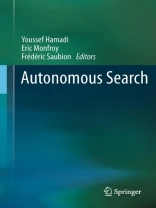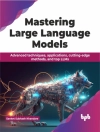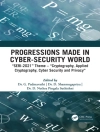Decades of innovations in combinatorial problem solving have produced better and more complex algorithms. These new methods are better since they can solve larger problems and address new application domains. They are also more complex which means that they are hard to reproduce and often harder to fine-tune to the peculiarities of a given problem. This last point has created a paradox where efficient tools are out of reach of practitioners.
Autonomous search (AS) represents a new research field defined to precisely address the above challenge. Its major strength and originality consist in the fact that problem solvers can now perform self-improvement operations based on analysis of the performances of the solving process — including short-term reactive reconfiguration and long-term improvement through self-analysis of the performance, offline tuning and online control, and adaptive control and supervised control. Autonomous search ‘crosses the chasm’ and provides engineers and practitioners with systems that are able to autonomously self-tune their performance while effectively solving problems.
This is the first book dedicated to this topic, and it can be used as a reference for researchers, engineers, and postgraduates in the areas of constraint programming, machine learning, evolutionary computing, and feedback control theory. After the editors’ introduction to autonomous search, the chapters are focused on tuning algorithm parameters, autonomous complete (tree-based) constraint solvers, autonomous control in metaheuristics and heuristics, and future autonomous solving paradigms.
Autonomous search (AS) represents a new research field defined to precisely address the above challenge. Its major strength and originality consist in the fact that problem solvers can now perform self-improvement operations based on analysis of the performances of the solving process — including short-term reactive reconfiguration and long-term improvement through self-analysis of the performance, offline tuning and online control, and adaptive control and supervised control. Autonomous search ‘crosses the chasm’ and provides engineers and practitioners with systems that are able to autonomously self-tune their performance while effectively solving problems.
This is the first book dedicated to this topic, and it can be used as a reference for researchers, engineers, and postgraduates in the areas of constraint programming, machine learning, evolutionary computing, and feedback control theory. After the editors’ introduction to autonomous search, the chapters are focused on tuning algorithm parameters, autonomous complete (tree-based) constraint solvers, autonomous control in metaheuristics and heuristics, and future autonomous solving paradigms.
This is the first book dedicated to this topic, and it can be used as a reference for researchers, engineers, and postgraduates in the areas of constraint programming, machine learning, evolutionary computing, and feedback control theory. After the editors’ introduction to autonomous search, the chapters are focused on tuning algorithm parameters, autonomous complete (tree-based) constraint solvers, autonomous control in metaheuristics and heuristics, and future autonomous solving paradigms.
This is the first book dedicated to this topic, and it can be used as a reference for researchers, engineers, and postgraduates in the areas of constraint programming, machine learning, evolutionary computing, and feedback control theory. After the editors’ introduction to autonomous search, the chapters are focused on tuning algorithm parameters, autonomous complete (tree-based) constraint solvers, autonomous control in metaheuristics and heuristics, and future autonomous solving paradigms.
Table des matières
An Introduction to Autonomous Search.-Part I – Offline Configuration.-Evolutionary Algorithm Parameters and Methods to Tune Them.- Automated Algorithm Configuration and Parameter Tuning.- Case-Based Reasoning for Autonomous Constraint Solving.- Learning a Mixture of Search Heuristics.- Part II – Online Control.- An Investigation of Reinforcement Learning for Reactive Search Optimization.- Adaptive Operator Selection and Management in Evolutionary Algorithms.- Parameter Adaptation in Ant Colony Optimization.- Part III – New Directions and Applications.- Continuous Search in Constraint Programming.- Control-Based Clause Sharing in Parallel SAT Solving.- Learning Feature-Based Heuristic Functions.
A propos de l’auteur
Dr. Youssef Hamadi is the head of the Constraint Reasoning Group at Microsoft Research Cambridge, and his research interests include combinatorial optimization in alternative frameworks (parallel and distributed architectures); the application of machine learning to search; autonomous search; and parallel propositional satisfiability. Prof. Eric Monfroy is affiliated with both the Universidad Técnica Federico Santa María, Valparaíso, Chile and LINA, Université de Nantes, France; his research areas include heuristics, optimization, constraints, and search. Prof. Frédéric Saubion coheads the Metaheuristics, Optimization and Applications team at the Université d’Angers; his research topics include hybrid and adaptive evolutionary algorithms and applications of metaheuristics to various domains such as information retrieval, nonmonotonic reasoning and biology.












